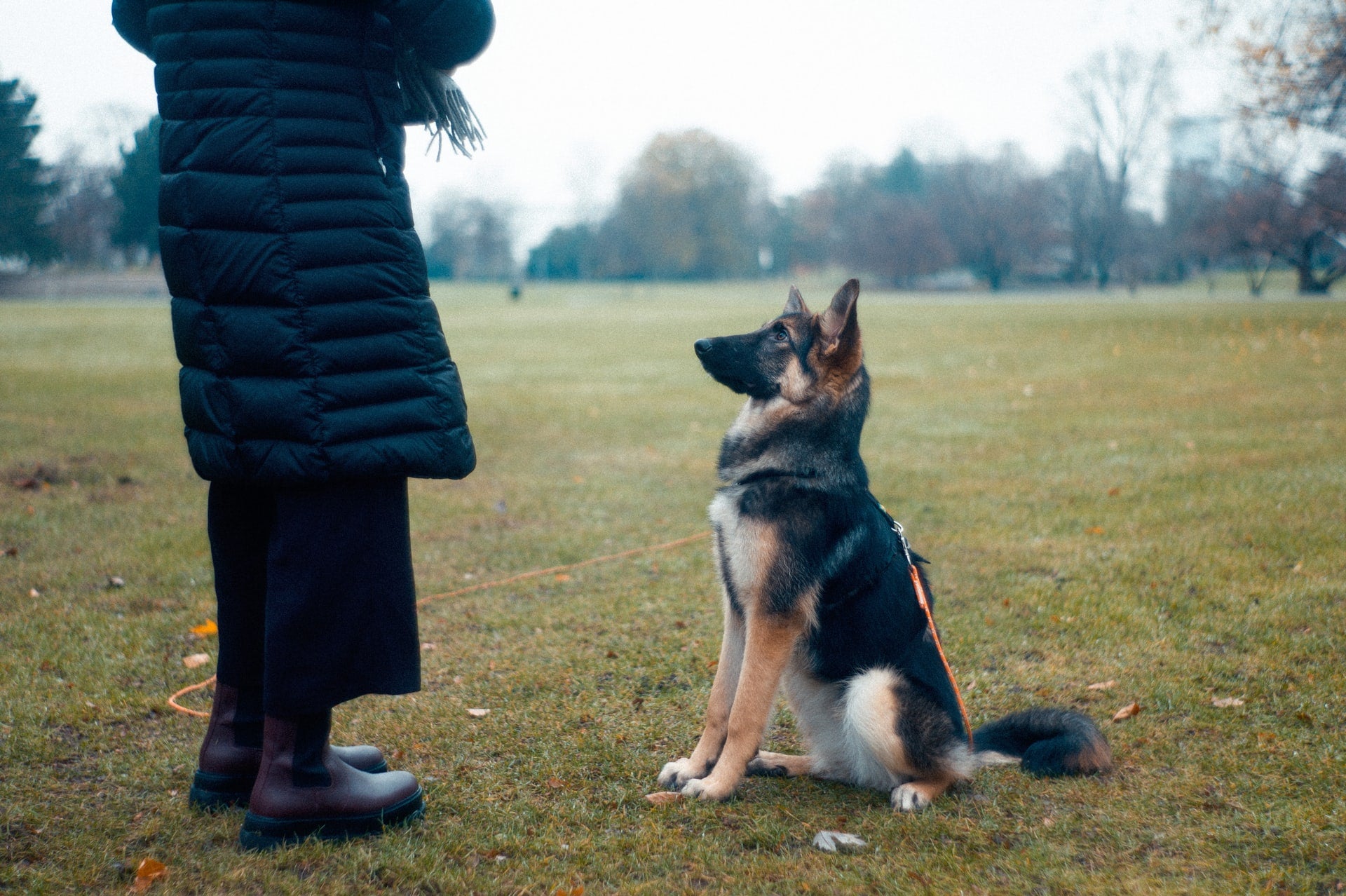October is Adopt a Shelter Dog Month. Perhaps you’ve fallen in love with a senior pooch even though you originally intended to get a puppy; maybe you’ve always had a soft spot for older dogs. Either way, congratulations on your new furry friend!
In order to ensure an enjoyable life together, you’ll want to spend a significant amount of time training your new pet. Communication and control are crucial when it comes to making your daily life easier in the long run.
Is It Too Late to Train an Older Dog?
Regardless of your dog’s age, there is bound to be an adjustment period as he gets used to his new home and environment. Even if you’ve had your dog since puppyhood, it’s possible he could use a refresher course when it comes to dog training—especially if you’re moving to a new home or making changes to his routine or living situation.
The good news is that it’s never too late to teach an old dog new tricks. In fact, some people find that training adult dogs is easier than training puppies since they can sit still and focus for longer periods of time. After all, dogs are natural learners throughout their lives. Plus, what dog doesn’t love a reason to get praise and treats?
That being said, older dogs can be more stubborn and set in their ways. While a puppy is more like a blank slate, your older pooch may have picked up bad habits throughout his lifetime. Before he can properly learn new rules and tricks, your dog needs to first unlearn his bad habits.
Improve your dog’s focus with PetHonesty’s Premium Hemp Calming Chews, a blend of natural ingredients which can be used as a beneficial dog training tool.
Unlearning Bad Habits
Depending on your dog’s history, he may have picked up negative behavior for a few different reasons. For example, perhaps he was an outdoor-only dog at his previous home, and potty training (or any training at all) was never a necessity.
It’s also possible that your dog was trained to live in an environment with different rules. Maybe he was taught to use paper potty pads rather than going outside; maybe he had a big yard and never went on walks or needed leash training.
Never punish your dog for his bad behavior—this may only make things worse. Instead, use plenty of dog training treats and positive reinforcement to redirect his behavior and teach him about the rules and boundaries in your home.
For example: if your dog loves to chew on shoes and furniture, provide him with plenty of dog-friendly chew toys. If he gets excited and jumps on visitors anytime they walk through the door, spend some time teaching him that he can get the same positive reaction he wants by following simple commands such as “down.”

Basic Training Tips
Before you start training your adult dog, talk to your vet to rule out any potential health issues that may hinder his abilities.
For example: if your senior pooch is experiencing memory problems, intense training sessions aren’t necessarily going to help him memorize new tricks. If he has difficulties controlling his bladder or bowels due to a health condition, then strict house training isn’t going to stop him from going inside. (Promote healthy digestion with PetHonesty’s Digestive Probiotics Chews!)
Before bringing home your new dog, learn as much about his history as possible. Was he trained to follow different rules? Are there any possible negative associations with certain items, such as crates? Does he have trouble getting along with other pets?
Don’t push your dog past his physical or mental limits. Some dogs may benefit from shorter, more frequent training sessions rather than longer, intense ones. Plus, pushing your dog too hard may result in negative associations.
Start with simple commands to build a foundation, and go from there. Before teaching your dog to “stay,” make sure he knows how to “sit.” Before teaching him to “roll over,” he should know how to “lie down.”
When training an adult dog, patience is key. Give your dog plenty of time to adjust to his new surroundings and family members. Older dogs may be slower to learn, but that doesn’t mean they don’t want to—they just need time to catch up. Keeping training sessions short and sweet can help to minimize your frustration as well as your dog’s.
Of course, don’t forget about rewards in the form of treats and praise. Have plenty of dog training treats on hand to give to your older pup immediately after he successfully follows a command or uses the bathroom outside. If you wait too long to provide positive reinforcement, he may not understand the connection. Use bite-sized dog training treats, since you’ll likely be using several per session.
If you’re having trouble training your adult dog, professional obedience training may be a worthwhile investment. Plus, obedience classes could be a good way to socialize your dog.
While training is a good opportunity for bonding and quality time between you and your furry friend, don’t forget to relax and have fun together. Spend plenty of non-training quality time together, such as snuggles on the couch, to establish a sense of trust and connection.
Sources:
https://khpet.com/blogs/dogs/how-late-is-too-late-to-train-an-older-dog
https://www.akc.org/expert-advice/training/how-to-housetrain-an-adult-dog/
https://www.thesprucepets.com/training-tips-for-adult-dogs-1118253
https://wagwalking.com/training/obedience-train-an-older-dog













